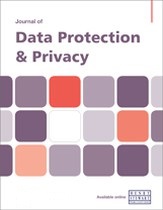The AI Act in light of the EU Digital Agenda: A critical approach
Abstract
This paper deals with the issue of the impact of artificial intelligence (AI) on our modern societies as well as on fundamental rights and freedoms, mainly those of privacy and security. AI constitutes one of the most essential pillars of the EU Digital Agenda. Despite its use in almost every field of private and public life there is a significant gap regarding its legal regulation. Subsequently, in relation to the proposed AI Act, which corresponds to the first binding legal instrument on AI anywhere, a key consideration arises regarding the governing of AI. Following a brief presentation of the nature and content of the proposed rules, this paper focuses on two major matters which give rise to serious concerns and demand further investigation: those of facial recognition and AI liability. Even though the draft AI Act encompasses provisions relating to these issues, there are still significant points which need to be clarified, such as the potential use of biometric identification tools by private organisations or the liability for AI decisions or actions. Through a comparative analysis of the existing European legal framework covering data protection as well as via the study of significant rulings of European courts and national competent authorities on data protection, this paper aims to demonstrate how to balance the rights, freedoms and interests of the individual against the challenges imposed by the ongoing technological evolutions. Moreover, an original theory is put forward in the area of AI liability which ideally keeps pace with the latest evolutions marked by the proposal of an AI Liability Directive. In addition, an effective mechanism is suggested for the lawful use of facial recognition systems. Therefore, the goal of the study is to indicate fruitful solutions of AI governance in order to build a trustworthy and productive technological environment, with respect to the consolidation of digital privacy and the deployment of modern technological tools.
The full article is available to subscribers to the journal.
Author's Biography
Konstantinos Kouroupis is an assistant professor of European and data rights law at the Department of Law of Frederick University in Cyprus. His area of expertise is online protection of privacy, security and data rights, artificial intelligence, digital law, human rights, and European law. He graduated in law from the Aristotle University of Thessaloniki and was awarded an LLM Diploma in European Law. He holds a PhD from the University of Macedonia in Greece, in EU Data Rights Law. He has participated as a speaker and keynote lecturer on data rights and privacy issues at numerous international conferences. Some of his studies have been uploaded to the digital library of EUROJUST, in the Hague, and are accessible to a large number of prosecutors, judicial officers and administrative staff of the European agency. In 2018 he delivered a paper entitled ‘National and European Legal Framework on Cybersecurity and Data Protection’, as an expert and on behalf of the Republic of Cyprus, during an international exercise under the supervision of the European Defence Agency, held at the Zenon Coordination Centre, in Larnaka, in Cyprus. He has participated in European projects and actions funded by the EU concerning the consolidation of a European area of justice and human rights. At present, he is a member of the European Cooperation in Science and Technology (COST) action entitled ‘Global Digital Human Rights Network’, under the auspices of COST, serving as Management Committee Delegate, representing Cyprus. He is the author of several legal books and has published numerous articles, in Greek, English and French, in esteemed international peer-reviewed journals.
